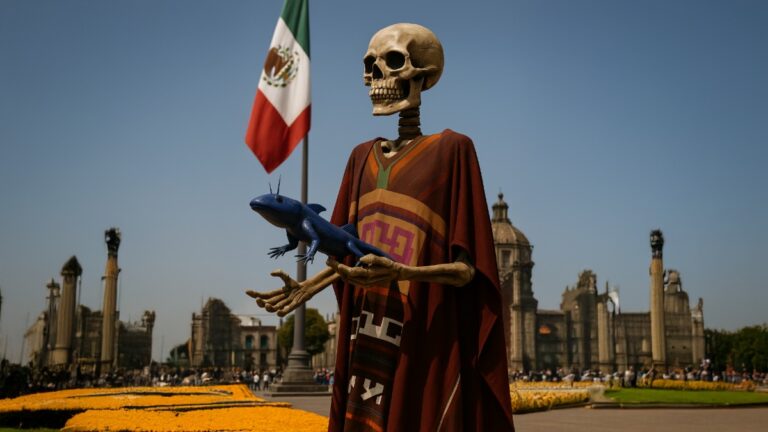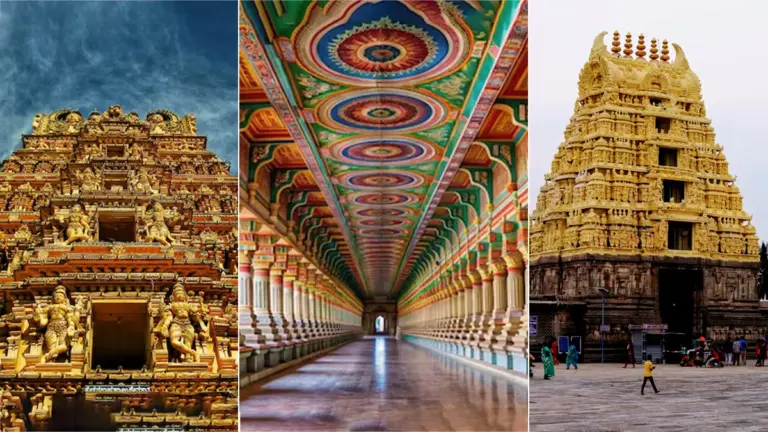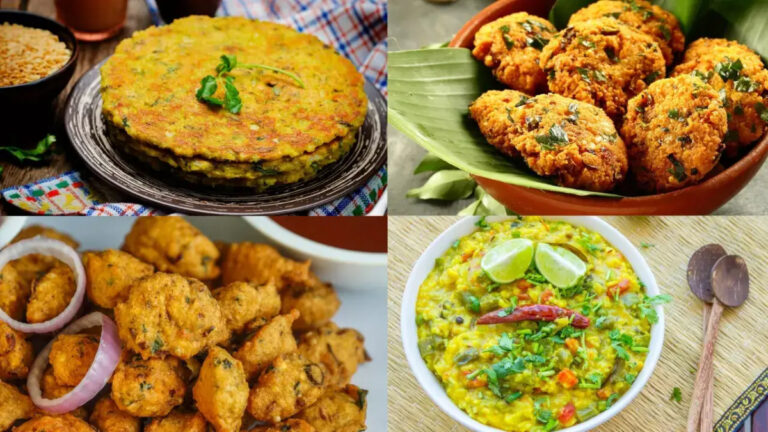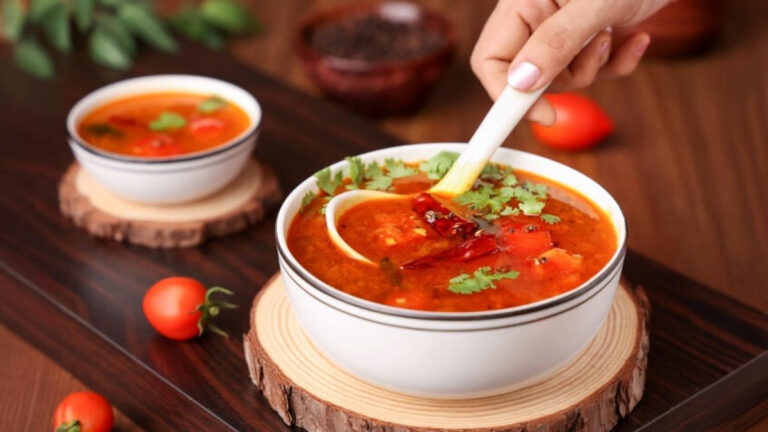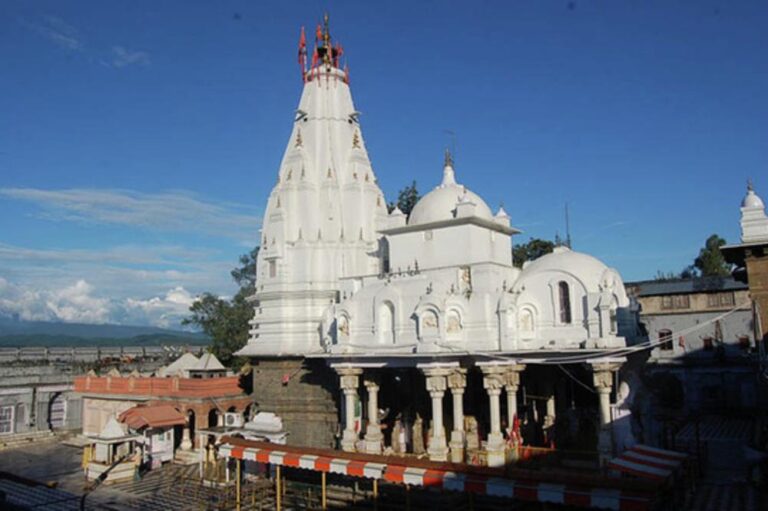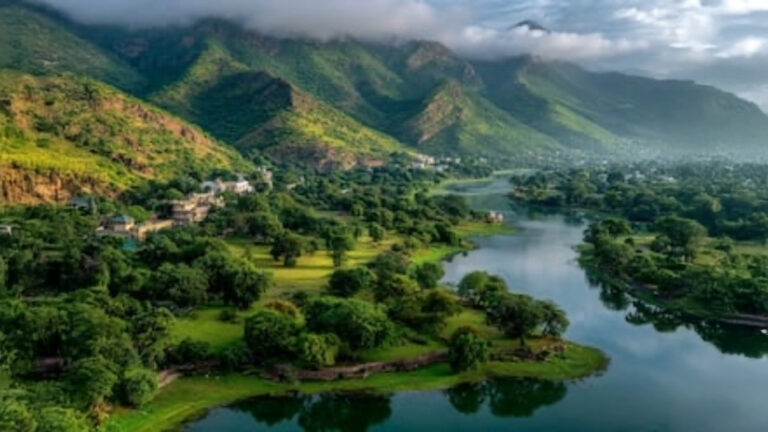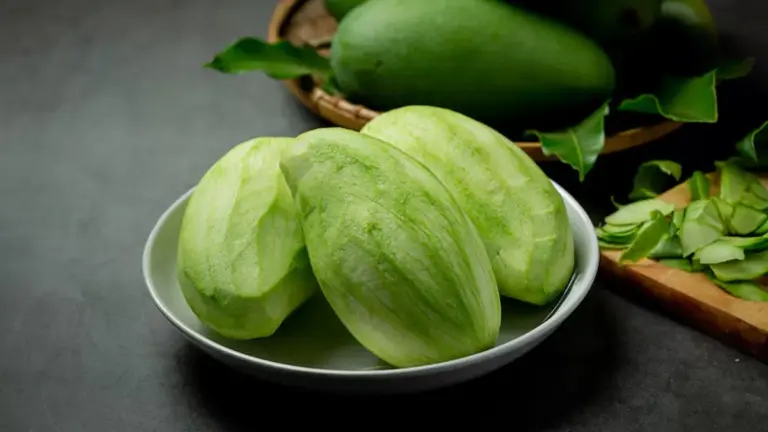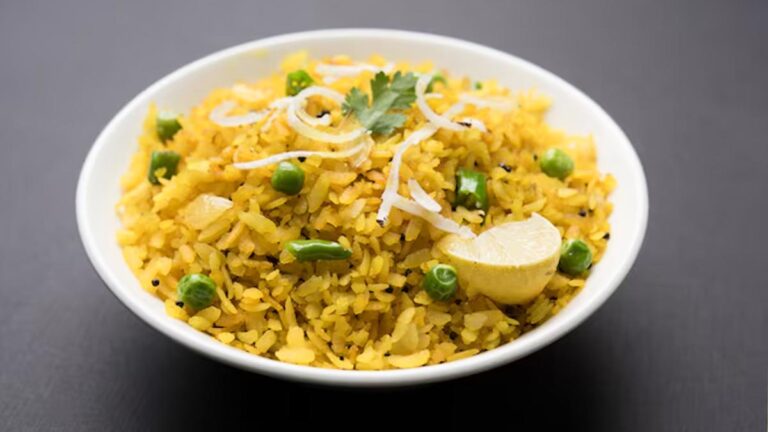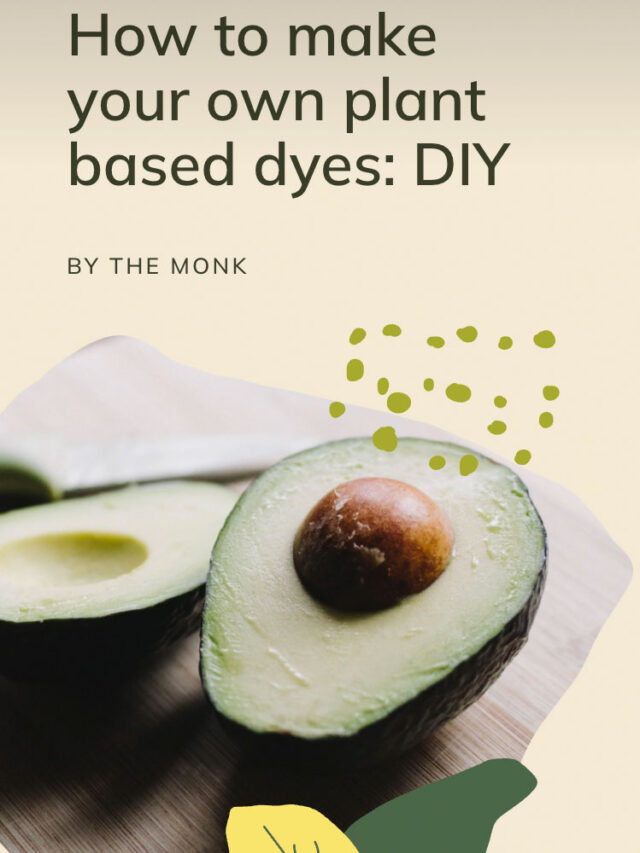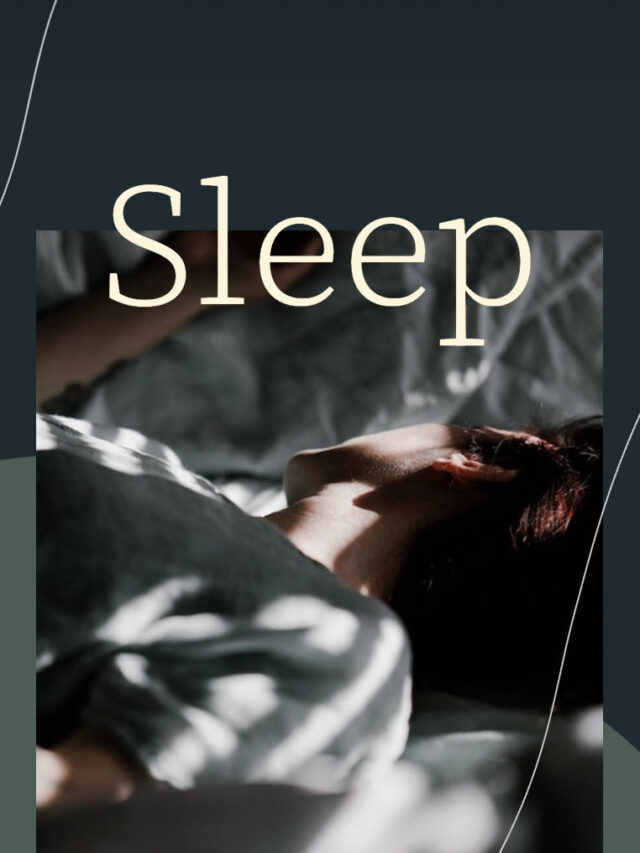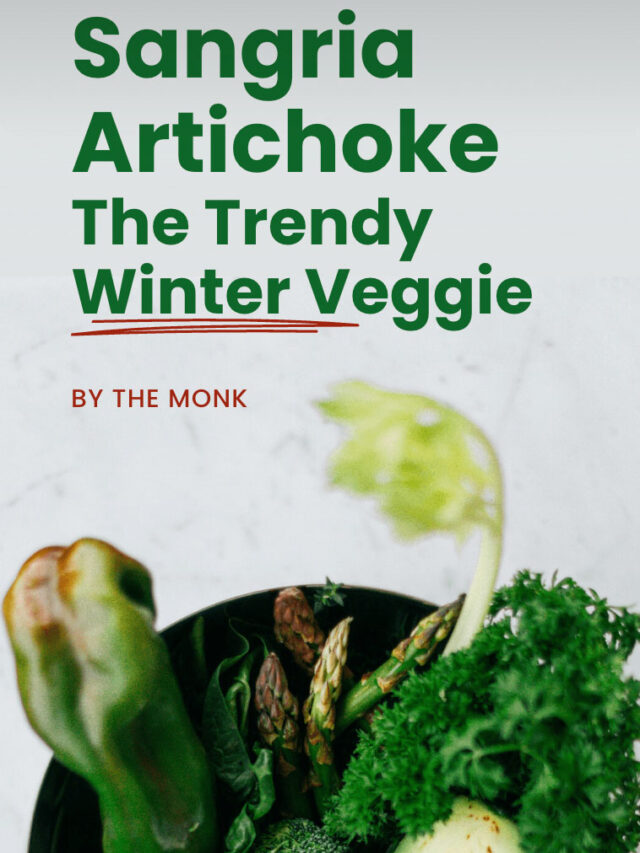Table of Contents
Lohri Festival 2025: There is a tradition of celebrating the festival of Lohri on the last day of the month of Paush. On Lohri, there is a ritual of lighting a holy fire and worshipping it. On this day, people remember Dulla Bhatti and sing his songs.
Lohri Festival 2025:
One of the most prominent festivals of the Sikh community, Lohri festival will be celebrated on 13 January 2025. This festival is most celebrated in Punjab, Haryana, Delhi. This festival is dedicated to agriculture and nature. On this day, farmers dedicate their new crops to the fire and offer thanks to Lord Sun. The festival of Lohri is a symbol of happiness, prosperity and happiness. People celebrate this festival together and sing songs of happiness. But, do you know what is the meaning of Lohri? Why is this festival celebrated every year? Let us know from
Pandit Indramani Ghansyal how Lohri got its name and why is this festival celebrated?
Why do we celebrate Lohri?
Lohri Festival 2025: There are many popular stories behind celebrating Lohri. The festival of Lohri is believed to be associated with Mata Sati, Lord Krishna and Dulla Bhatti. There is a tradition of singing Dulla Bhatti songs on this day. Fire is lit on Lohri. Everyone worships this holy fire. Everyone from the family and relatives together light Lohri. New crops, Revdi, sesame, peanuts, jaggery etc. are put in the fire. At the same time, items related to Lohri are distributed to the guests and Lohri greetings are give.
How did Lohri get its name?
The origins of the name Lohri are deeply rooted in folklore and tradition. There are various theories explaining how this festival got its name:
1. Derived from ‘Tilohri’:
The name Lohri is believed to have originated from the word Tilohri, a combination of til (sesame seeds) and rorhi (jaggery). These two ingredients are considered auspicious and are traditionally exchanged during the festival. Over time, Tilohri became Lohri.
2. Connection to Goddess Lohri:
Another legend attributes the name to a goddess named Lohri, who is worshipped during the festival to ensure prosperity and protection.
3. Reference to Dulla Bhatti:
The festival is also associated with Dulla Bhatti, a heroic figure in Punjabi folklore who rescued girls from abduction during the Mughal era. Lohri songs often include his name as a mark of respect.
4. Lohri as Part of Harvest Tradition:
The festival’s name may also have agricultural roots, symbolizing the end of the winter harvest and the beginning of a new agricultural cycle.
Lohri Festival 2025 Importance of Lohri
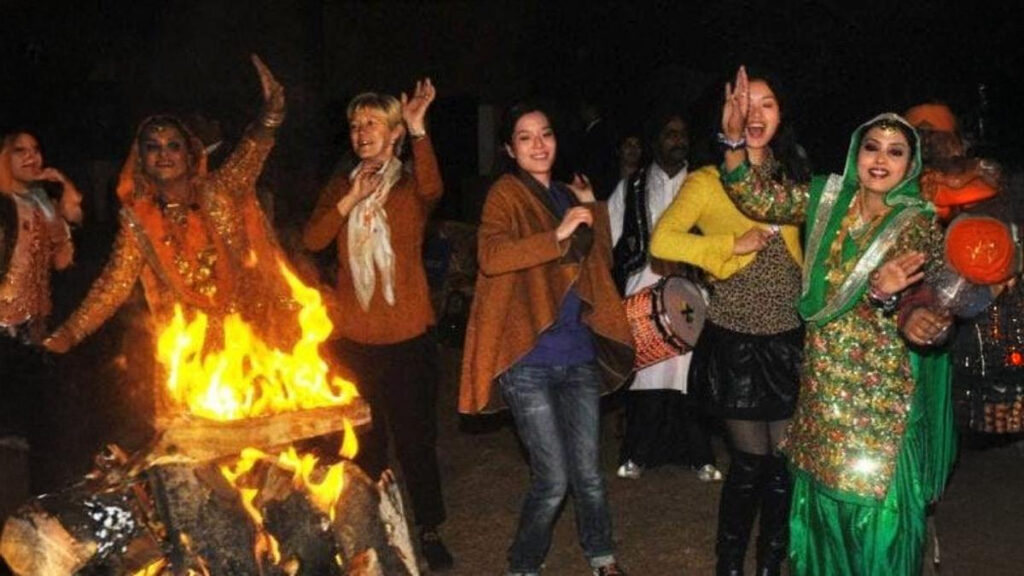
Lohri holds immense cultural, agricultural, and social importance. It is more than just a festival; it is a celebration of life, gratitude, and hope.
1. Cultural Significance
• Folk Music and Dance: Traditional songs like “Sunder Mundriye Ho” and folk dances such as Bhangra and Gidda are integral to Lohri celebrations. These performances showcase the rich cultural heritage of Punjab.
• Traditional Attire: People dress in vibrant Punjabi attire, adding to the festive spirit.
• Bonfire Ritual: Lighting a bonfire is a central aspect of the festival, symbolizing the Sun’s energy and the departure of winter.
2. Agricultural Significance
• Thanksgiving for Harvest: Farmers celebrate Lohri to thank the divine for a successful harvest and pray for future prosperity.
• Sugarcane Crop: The festival coincides with the harvesting of sugarcane, an essential crop in Punjab. Products like jaggery and gajak are made from sugarcane and shared during the celebrations.
3. Social Significance
• Strengthening Family Bonds: Lohri provides an opportunity for families to come together, celebrate, and create cherished memories.
• Welcoming New Beginnings: For families with a new marriage or a newborn, Lohri holds special importance, as it is considered an auspicious time to start fresh.
• Community Togetherness: The festival fosters a sense of unity and camaraderie among people, transcending social and economic barriers.
4. Spiritual Significance
• Symbol of Positivity: Lohri is celebrated to dispel darkness and bring light and positivity into people’s lives.
• Blessings for Prosperity: The festival is seen as a way to seek blessings for health, wealth, and happiness.
Traditional Celebrations of Lohri
The traditional customs and practices associated with Lohri make it a colorful and joyous festival.
1. Lighting the Bonfire:
• Families and communities gather around a bonfire, which is the focal point of the celebration.
• People throw sesame seeds, jaggery, popcorn, and other items into the fire as offerings to the gods.
2. Singing and Dancing:
• Folk songs praising Dulla Bhatti and celebrating the harvest season are sung.
• Bhangra and Gidda performances around the bonfire add to the festive atmosphere.
3. Feasting on Traditional Foods:
• A variety of traditional Punjabi dishes like makki di roti, sarson da saag, gajak, rewri, and til ke laddoo are prepared and enjoyed.
• Sharing sweets and food symbolizes unity and goodwill.
4. Exchanging Gifts:
• Families exchange gifts, especially for newlyweds and newborns, as a way of spreading joy and blessings.
5. Visiting Friends and Relatives:
• The festival is an occasion to visit loved ones and participate in collective celebrations.
Lohri and Modern Celebrations
Lohri Festival 2025, In modern times, Lohri celebrations have evolved, yet they retain their essence. Urban areas host Lohri parties and cultural programs, making it a grand affair. With social media playing a significant role, people now share greetings and celebrate virtually, connecting with friends and family worldwide.
Lohri Festival 2025, Lohri is not just a festival; it is a celebration of life, nature, and the spirit of togetherness. From its rich cultural roots to its agricultural significance, Lohri continues to bring joy and positivity into people’s lives. As we celebrate Lohri in 2025, let us embrace its traditions, cherish our loved ones, and look forward to a prosperous and joyful year ahead.
(Disclaimer: The information given here is based on general information. Before adopting it, definitely take medical advice. THE MONK does not confirm this.)







